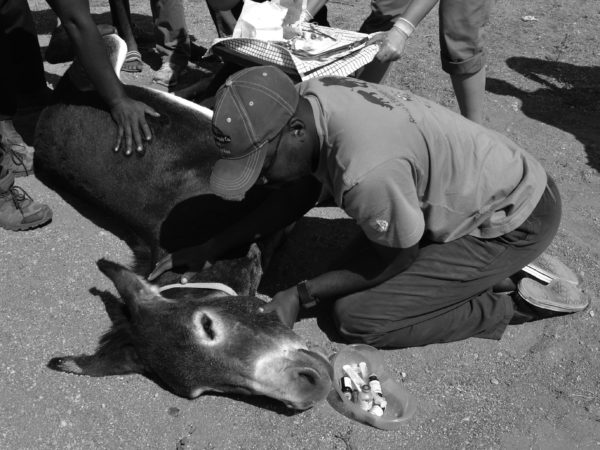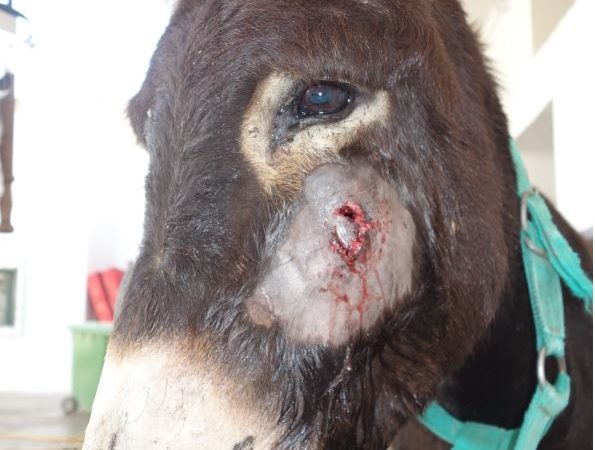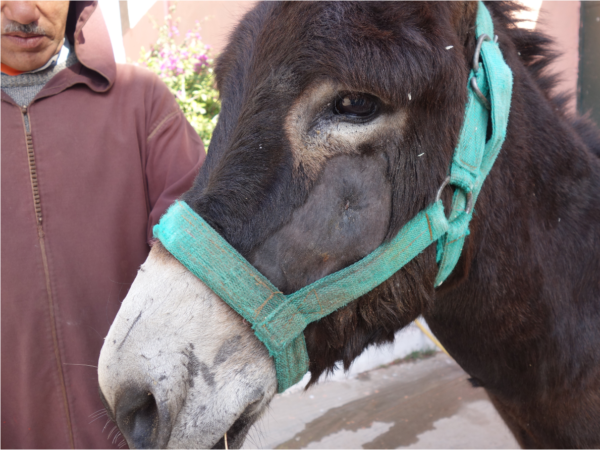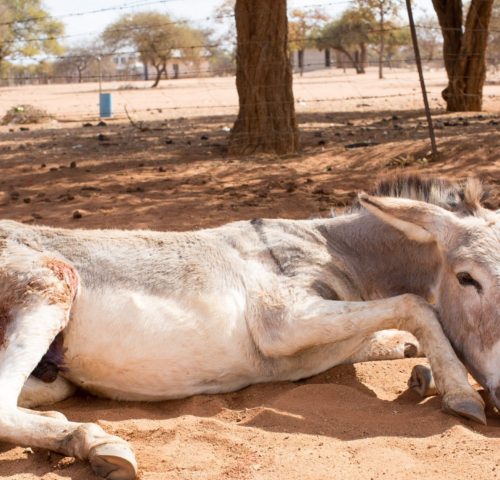
Can you help provide emergency treatment to animals suffering from serious wounds?
Every day, working animals are at risk of serious injuries because of the hazardous environments they work in. These can be caused by anything from traffic accidents to wild animal attacks, and our teams must be ready to provide emergency treatment for animals suffering from serious wounds.
From surgery in the field to weeks of attentive care in our centres, we want to be there for every animal with a serious injury who needs us.
Working animals cannot call emergency services. With your kind support, you will help make sure our veterinary teams can be there for animals when they have suffered a serious injury and need urgent care.
If you are able to, please donate today to help provide emergency treatment for working animals with serious injuries.

Rayan’s story
Four-year-old donkey Rayan works in Badaga, a rural village in Morocco. Rayan works long, hot days, pulling a heavy cart of essential water and goods for his owner, Miloudi, and his family.
One day, when Rayan and Miloudi were fetching water, the young donkey hit something on the road and fell on the hard ground. Disorientated and distressed, he tried to get up quickly and hit his left cheek against the metallic corner of the cart. A sharp pain pierced his face.
Miloudi first thought the wound looked superficial, but after four days, it was becoming larger and deeper. Rayan was having trouble breathing and couldn’t move his face to eat or drink, causing him to become thinner and weaker. An awful smell was coming from the donkey’s face, which meant the wound, or the damaged skin and bones in his cheek, had become infected.
This was an emergency – Miloudi knew he had to get urgent treatment for his precious donkey.
Thankfully, he’d heard about our SPANA centre in Chemaia and made the 18 km journey there.
Our professional vets saw tiny bone fragments in Rayan’s deep wound, and an X-ray revealed what they feared – he had a fracture. They needed to perform surgery to extract the bone fragments right away before the infection worsened.
Our vets immediately gave Rayan some general anaesthetic, cleaned his wound and used special tubes to drain it of fluid. They discovered the fracture had also caused painful sinusitis – swelling of the hollow spaces around the nose – as there was fluid coming out of his left nostril.
After surgery, Rayan started a course of painkillers and antibiotics, and was given a preventative anti-tetanus vaccination.
Rayan then stayed in the SPANA centre for three weeks. Every day, our team cleaned and flushed his wound with water and antiseptic.
Thankfully, after this careful treatment, the large wound had completely healed, and Rayan was able to return home.
‘Thank you to SPANA for helping my donkey,’ said Miloudi. ‘He is very important to me. We would not be able to afford care without your team.’

Without the generosity of our kind supporters, Rayan could have suffered a painful death. Sadly, many other working animals worldwide need our teams to be ready to provide urgent care in an emergency too.
We can only do this with your kind support.


